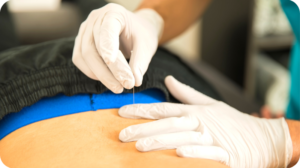Basking in the sun is one of the great joys of summer. However, indulge your inner sun worshipper without wearing sunglasses and you may wind up regretting it. Just like your skin, your eyes are extremely sensitive to the sun’s UV rays. In fact, overexposure to UV light can lead to a range of eye disorders. The most serious include vision-blocking cataracts, and cancers of the eye.

Fortunately, sun-damage is easy to prevent. The best, most simple way to protect your eyes is with the right sunglasses, worn every time you go outside.
If you haven’t yet had your annual eye exam, that’s a great opportunity to consider new sunglasses, especially if your eyesight has changed, and you need prescription lenses. Almost any style of sunglasses can be crafted in a prescription version.
Choosing the Best Sunglasses
Where your eyes are concerned, cost should be no object. Even though the right sunglasses may be expensive, the cost is nothing in comparison to diminished vision or serious eye-related disorders. Any money you spend on sunglasses is a solid investment in long-term eye health.
- UV protection. The best sunglasses are any reputable brand that offers 100 percent blocking, full spectrum protection. There are three types of UV rays in sunlight: A, B, and C. Any sunglasses you buy should protect against all types of UV light. If the glasses you’re considering are not labeled as offering 100 percent blocking, they probably don’t.
- Coverage. The next most important consideration in choosing eye-protective sunglasses is the size of the frames and lenses. Obviously, any pair that leaves large gaps or parts of the eye exposed, is not going to block as many UV rays as it should. In short, the larger the lens (within reason), the better. It’s ideal to choose sunglasses that fit as tightly as possible to your face; wraparound shades are some of the best.
- Polarization. This is a matter of personal preference. Polarized lenses lighten in dark conditions and darken in direct sunlight. The feature neither diminishes or improves UV blocking capability. It adds to the cost of the sunglasses, so that may be a factor in your decision.
- Color. Most people find one color or another is more comfortable to their eyes. Although you can find sunglasses with blue, red, or yellow lenses, most are tinted brown or gray. The best way to determine which tint is most comfortable for you, is to try one different pairs. In any case, lens color also has no appreciable effect on UV blocking.
Obviously, you’ll want to weigh these factors against the design and look that appeals most to you. However, the best, most expensive sunglasses in the world won’t protect your eyes if you don’t wear them. Get in the habit of putting on sunglasses anytime you go outside—even if you’re just taking a walk or gardening. You’ll not only be protecting your eyes, you’ll look cool in the process!





